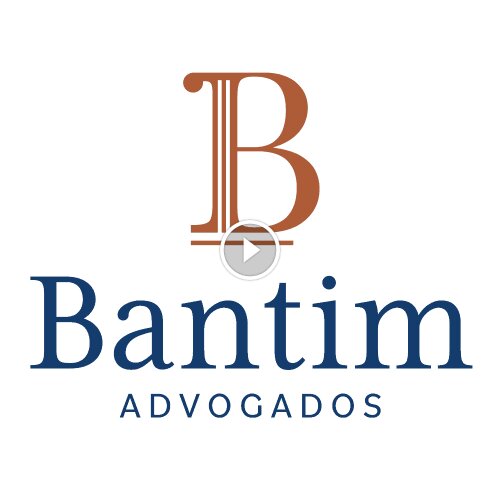Best Acquisition / Leveraged Finance Lawyers in Sao Paulo
Share your needs with us, get contacted by law firms.
Free. Takes 2 min.
List of the best lawyers in Sao Paulo, Brazil
About Acquisition / Leveraged Finance Law in Sao Paulo, Brazil
Acquisition and leveraged finance law in Sao Paulo, Brazil, refers to the complex legal frameworks governing the financing of acquisitions, including those structured with significant borrowed funds (leveraged finance). Sao Paulo, as Brazil's financial capital, is a leading hub for mergers and acquisitions (M&A) and corporate finance activities involving both domestic and international investors. These transactions typically involve banks, investment funds, private equity firms, and a range of financial instruments. The legal landscape is influenced by Brazilian corporate, banking, securities, and bankruptcy law, requiring a comprehensive approach to structuring, negotiating, and executing deals in compliance with local regulations and market standards.
Why You May Need a Lawyer
There are multiple scenarios where legal guidance is crucial in acquisition and leveraged finance matters in Sao Paulo. You may require a lawyer if you are:
- Planning to acquire a company using borrowed funds or are a target of such an acquisition
- A financial institution, private equity firm, or lender providing financing for an acquisition
- Negotiating or reviewing complex loan agreements, pledge agreements, or intercreditor arrangements
- Ensuring regulatory compliance, including obtaining approvals from the Brazilian Central Bank or the Securities and Exchange Commission of Brazil (CVM)
- Managing due diligence, contractual structuring, or risk allocation issues
- Dealing with cross-border components, including foreign currency loans or guarantees
- Mitigating risks of insolvency, successor liability, or other post-deal exposures
Given the high values, intricate structures, and regulatory scrutiny often involved, specialized legal expertise helps protect your interests and ensures the deal proceeds smoothly.
Local Laws Overview
Acquisition and leveraged finance deals in Sao Paulo operate within a well-defined but highly regulated legal environment:
- Corporate Law: Law 6.404/76 (Brazilian Corporate Law) governs company structures, share transfers, and corporate authorizations required for acquisitions and financing arrangements.
- Banking Regulations: Only authorized financial institutions can provide loans or credit facilities, subject to Central Bank (BACEN) oversight and anti-money laundering controls.
- Securities Law: Transactions involving public companies or relevant securities are regulated by the Securities and Exchange Commission of Brazil (CVM), including disclosure obligations and public offers.
- Guarantees and Collateral: Brazilian law recognizes various guarantees such as pledges, mortgages, and fiduciary assignments. The validity and enforceability of these depend on proper registration and documentation.
- Foreign Exchange Controls: Cross-border deals are regulated, requiring registration with the Central Bank and compliance with foreign currency lending rules.
- Insolvency Protections: The Brazilian Bankruptcy Law (Law 11.101/05) impacts lender protections, priority of claims, and enforcement rights in the event of distress or insolvency.
- Tax Implications: Acquisition structures may trigger withholding taxes, financial transaction taxes (IOF), and other applicable levies.
These aspects make legal and structuring advice essential to avoid regulatory pitfalls and maximize the benefits of acquisition and leveraged financing in Sao Paulo.
Frequently Asked Questions
What is leveraged finance in the context of Sao Paulo, Brazil?
Leveraged finance refers to funding an acquisition or company using borrowed money, where leverage (debt) is a significant part of the transaction. In Sao Paulo, this usually involves banks or funds lending money to acquire or restructure businesses.
What types of entities can provide acquisition finance in Brazil?
Only authorized financial institutions, such as banks and certain investment funds regulated by the Central Bank or CVM, can provide acquisition financing and related financial products in Brazil.
Is foreign acquisition financing allowed in Brazil?
Yes, foreign lenders can provide financing, but cross-border loans must comply with Brazilian foreign exchange regulations, including registration with the Central Bank and observance of local tax requirements.
Are there restrictions on how acquired companies can be used as collateral?
Brazilian law allows various forms of collateral, such as share pledges and fiduciary transfers, but proper documentation, registration, and compliance with corporate requirements are necessary for enforcement.
What are typical steps in an acquisition finance transaction?
A transaction typically involves due diligence, negotiation of the acquisition and financing agreements, structuring of guarantees and collateral, obtaining corporate and regulatory approvals, and closing/settlement.
Does acquisition finance trigger specific tax obligations?
Yes, acquisition finance may result in taxes such as IOF (tax on financial operations), withholding tax on interest paid abroad, and possible capital gains taxes, depending on the structure and parties involved.
How long does it take to close an acquisition finance deal?
The timeline varies based on complexity, but a straightforward domestic deal can take several weeks, while cross-border or highly leveraged transactions may take several months.
What happens if the borrower faces insolvency?
Brazil's Bankruptcy Law establishes creditor priorities and rules for enforcement. Lenders often seek secured positions and protective covenants to mitigate insolvency risks.
Are there regulatory authorities overseeing acquisition finance transactions?
Yes, the Central Bank of Brazil (BACEN), Securities and Exchange Commission of Brazil (CVM), and the local commercial registries oversee various aspects of acquisition and leveraged finance transactions.
Do I need a lawyer to complete an acquisition finance transaction?
Legal counsel is highly recommended due to the nuanced local rules, regulatory requirements, and high values commonly involved in these transactions. Lawyers ensure legal compliance, negotiate favorable terms, and protect your interests.
Additional Resources
If you are seeking more information or assistance, the following resources may be helpful:
- Central Bank of Brazil (BACEN) - Oversees banking, foreign loans, and currency regulations in Brazil.
- Securities and Exchange Commission of Brazil (CVM) - Regulates securities markets and public companies.
- Commercial Registries (Junta Comercial) - Handles corporate acts, including registration of collateral and company documents.
- Brazilian Institute of Corporate Law (IBRADEMP) - Offers educational resources and conferences on corporate and financial law.
- Brazilian Association of Financial and Capital Market Entities (ANBIMA) - Represents financial market participants and provides best practices.
Engaging with these organizations or consulting their materials can provide useful background before engaging in a transaction.
Next Steps
If you believe you need legal assistance with acquisition or leveraged finance in Sao Paulo, it is important to consult a lawyer specialized in these matters. Start by gathering information on your intended transaction, including relevant contracts, company and financial details, and any questions you may have. Look for law firms or attorneys with strong experience in M&A and banking law in Brazil, especially those with knowledge of local regulatory requirements. Most reputable lawyers will offer an initial consultation to assess your needs and explain the next steps. By acting early and seeking specialized support, you can navigate Brazilian legal and financial complexities and maximize the success of your financing transaction.
Lawzana helps you find the best lawyers and law firms in Sao Paulo through a curated and pre-screened list of qualified legal professionals. Our platform offers rankings and detailed profiles of attorneys and law firms, allowing you to compare based on practice areas, including Acquisition / Leveraged Finance, experience, and client feedback.
Each profile includes a description of the firm's areas of practice, client reviews, team members and partners, year of establishment, spoken languages, office locations, contact information, social media presence, and any published articles or resources. Most firms on our platform speak English and are experienced in both local and international legal matters.
Get a quote from top-rated law firms in Sao Paulo, Brazil — quickly, securely, and without unnecessary hassle.
Disclaimer:
The information provided on this page is for general informational purposes only and does not constitute legal advice. While we strive to ensure the accuracy and relevance of the content, legal information may change over time, and interpretations of the law can vary. You should always consult with a qualified legal professional for advice specific to your situation.
We disclaim all liability for actions taken or not taken based on the content of this page. If you believe any information is incorrect or outdated, please contact us, and we will review and update it where appropriate.










